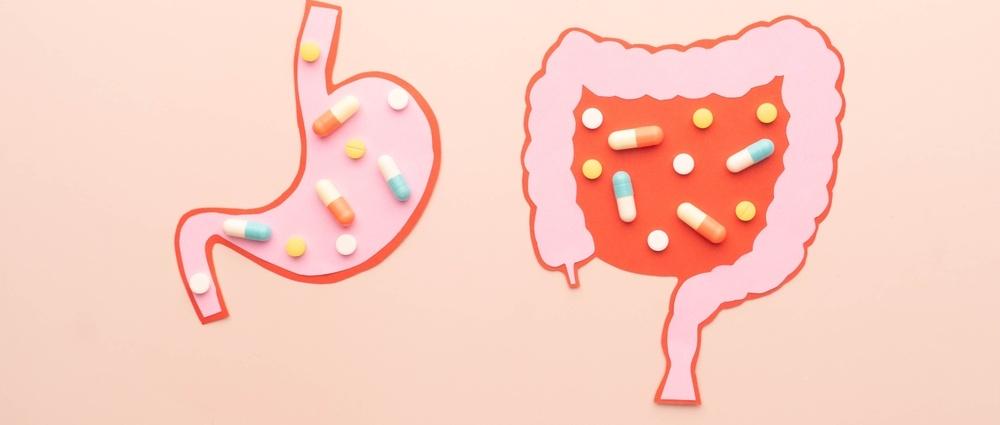
When to worry about indigestion
Peer reviewed by Dr Colin Tidy, MRCGPLast updated by Lynn StephenLast updated 11 Dec 2025
Meets Patient’s editorial guidelines
- DownloadDownload
- Share
- Language
- Discussion
Most of us get indigestion from time to time, but for some it's a regular annoyance. How can you avoid it, and when should you worry about indigestion?
In this article:
The medical term for indigestion is 'dyspepsia' - this includes several different types of stomach pain caused by issues with your digestive tract.
Continue reading below
Symptoms of indigestion
Indigestion covers a variety of symptoms. The most common is pain - typically a burning pain in the top part of your stomach (upper abdomen), or travelling behind your breastbone.
However, indigestion can also cause:
Nausea or being sick.
Bloating of your tummy.
Burping.
Feeling full quickly when you eat.
Heartburn.
How long can indigestion last?
In most cases, indigestion goes away in a few hours.
However, if you find you get indigestion often, or your symptoms last for more than two weeks, it could be a sign of a serious condition. In this case, it is important to talk to your doctor, as they may recommend tests to investigate the cause of your indigestion.
Causes of indigestion
Stomach acid
Indigestion is usually caused by inflammation in your stomach. This is often due to too much stomach acid, which your body makes to digest food. If this acid backs up into your food pipe (oesophagus), it can cause heartburn - burning pain behind your breastbone, sometimes accompanied by a bitter liquid rising into your mouth. In the UK, 1 in 4 adults and 1 in 5 in the US regularly experience heartburn.
Other causes include:
Ulcers
Peptic ulcers include ulcers in your stomach and the area connecting the top of your gut to your stomach (duodenum).
Hiatus hernia
Hiatus hernia occurs when the top part of the stomach pushes up into the chest cavity, often causing heartburn.
Pregnancy
Indigestion is common in pregnancy and around half of all pregnant women have indigestion at some point. Indigestion in pregnancy is usually due to reflux of acid from the stomach into the oesophagus.
Stomach cancer
Indigestion can occasionally be a sign of stomach cancer, although this is rare and most people who have indigestion do not have stomach cancer. If it gets worse or does not get better after 3 weeks with usual medicines it is recommended to see your doctor, particularly if combined with other symptoms such as unintended weight loss, feeling sick, and blood in your poo.
Medicines that cause indigestion
Medicines are a common cause of indigestion.
Some of the most likely to cause it include:
Aspirin.
Anti-inflammatory tablets - may be taken for muscle pains or arthritis. These include medicines such as ibuprofen, diclofenac, and naproxen.
Tablets taken daily, weekly, or monthly to prevent osteoporosis, or 'thinning' of the bones (bisphosphonates).
Some antibiotics - especially erythromycin.
Medicines used for high blood pressure or sometimes angina (calcium antagonists).
If your indigestion starts, or becomes worse, shortly after you start taking one of these medicines, see your doctor. They may be able to change your tablets - or the time you take it - to stop indigestion from happening.
Germs
Sometimes a germ called Helicobacter pylori can make indigestion worse. Your doctor may perform a breath, poo (stool), or blood test for this and if necessary, give you a one-week course of treatment with three different tablets to get rid of it. This doesn't always work and it involves taking several tablets a day and often having to avoid alcohol for a week, but it can reduce the chance of symptoms returning.
Continue reading below
How to treat indigestion
Proton pump inhibitors
Tablets such as proton pump inhibitors (PPIs) - for example, omeprazole, lansoprazole and, esomeprazole - help to keep stomach acid under control and hopefully ease the symptoms of indigestion.
Home remedies for indigestion
There are several home remedies that have proved to be effective in treating indigestion in the short-term.
These can include:
Chamomile tea.
Peppermint tea.
Apple cider vinegar.
Ginger.
Fennel seed.
However, home remedies should not be relied upon if your symptoms last for more than two weeks or worsen.
If you have any pre-existing health conditions, you should also talk to your doctor before trying any of these.
When to see a doctor about indigestion
Indigestion and heartburn are rarely due to a serious cause, but there are some possible warning signs which should be checked out by a doctor.
They include:
Severe pain which doesn't settle with remedies from your pharmacist or doctor.
Being 'off' your food or losing weight for no obvious reason.
Food sticking when you swallow, or severe pain on swallowing.
Blood in your poo, especially if it's dark red and mixed in with the poo.
Feel generally unwell - which can be down to anaemia - or tired.
Persistent bloating that lasts for three weeks or longer - which could in rare cases be caused by ovarian cancer.
Seek immediate attention by calling for an emergency ambulance (999 in the UK) if:
You are being sick with blood or black coffee grounds like substance in your vomit.
You have black, tarry poos or blood continuously dripping (not stopping) from your bottom.
Continue reading below
Further investigation
Your doctor may recommend further investigations for any of these reasons:
If you have a past history of peptic ulcer.
A condition called Barrett's oesophagus.
If you develop persistent indigestion or reflux - especially with weight loss over the age of 55.
There are two main investigations to check what may be the cause of your long term indigestion:
A gastroscopy - a small flexible tube is passed down your throat, sometimes under sedation, to look inside your stomach. This is done as a day case in hospital but you'll need someone to take you home afterwards.
A colonoscopy - done where an abnormality of the lower bowel is suspected. You take medicines at home to empty your gut completely, then go in as a day case to hospital and have a small flexible tube passed up from your bottom to examine your large bowel.
Preventing indigestion
There's much that you can do to relieve or prevent your symptoms happening in the first place.
In heartburn, lying down often brings on the issue because the acid doesn't have to travel against gravity up into your food pipe. Propping the head of your bed up on a couple of risers may help.
So too can losing weight, avoiding tight belts or trousers and staying away from large meals or eating too close to bedtime.
For other indigestion, you may find that some foods such as peppermint, tomatoes, alcohol or spicy foods are best avoided.
Your pharmacist can advise on short-term remedies or a course of tablets to relieve the discomfort. You could also try probiotics.
Patient picks for Indigestion and heartburn

Digestive health
Acid reflux diet: foods to eat and avoid
If you have a burning pain in your chest or travelling up your throat after eating, you're probably experiencing acid reflux - a feeling more commonly described as heartburn. Some foods are more likely to trigger this annoying and uncomfortable symptom. So, if it keeps revisiting you after meals, it may help to look at how you eat as well as what you eat.
by Lynn Stephen

Digestive health
How to get rid of indigestion
Indigestion is incredibly common and can affect people differently. Fortunately, there are ways of managing it, most of which are simple lifestyle changes.
by Emily Jane Bashforth
Continue reading below
Article history
The information on this page is peer reviewed by qualified clinicians.
Next review due: 10 Dec 2028
11 Dec 2025 | Latest version
9 Feb 2018 | Originally published
Authored by:
Dr Sarah Jarvis MBE, FRCGP

Ask, share, connect.
Browse discussions, ask questions, and share experiences across hundreds of health topics.

Feeling unwell?
Assess your symptoms online for free
Sign up to the Patient newsletter
Your weekly dose of clear, trustworthy health advice - written to help you feel informed, confident and in control.
By subscribing you accept our Privacy Policy. You can unsubscribe at any time. We never sell your data.